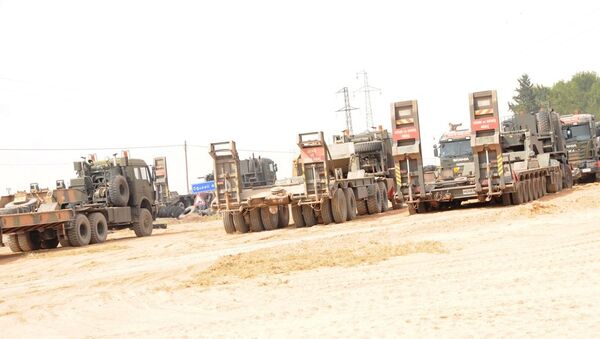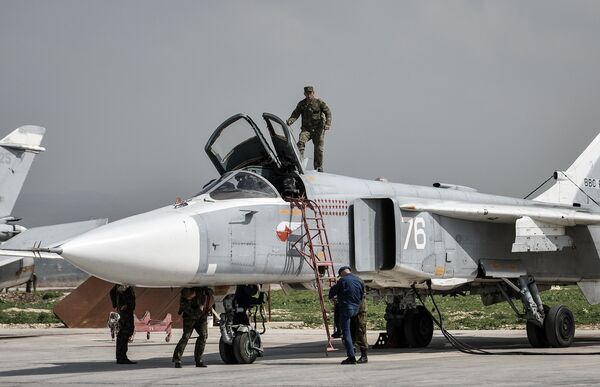The ministry's request was reportedly submitted to the Turkish Ministry of National Defense. It is meant to help avoid air collisions, "since Turkish warplanes have conducted intense airstrikes in Syria and could cross paths with Russian attack planes," the source added.
Media reports suggest that some of the targets hit by Turkish planes were located far from the area where Operation Euphrates Shield was supposed to be conducted.
On Friday, Turkish Prime Minister Binali Yildirim said that Ankara will carry out similar operations in the future. Cross-border campaigns, he added, will continue until "we ensure 100 percent security" of the Turkish border and until Daesh and "other terror entities are cleared from the region."
Alexander Vasilyev, a researcher at the Russian Academy of Sciences' Institute of Oriental Studies told Izvestiya that Turkey clearly wants to minimize the risk of air incidents. "The fact that Turkey informed Russia about the operation in Jarablus shows that Ankara has drawn a conclusion from what happened after the Su-24 was downed," he said.
This does not necessarily mean that both countries will join forces to tackle radical groups wreaking havoc in the war-torn Arab country, since Russia and Turkey pursue different goals in Syria.
"Ankara is primarily focused on tackling the Kurds, but Daesh has lately also become a serious threat for the country. Turkish authorities have long turned a blind eye to Daesh's activities in the border regions, since the radical group was also fighting against the Kurds," he said.
Ankara's attitude to the brutal organization that still controls large areas in Iraq and Syria has apparently changed since Daesh started to carry out terrorist attacks in Turkey. Turkish leadership, according to Vasilyev, now understands how dangerous the group is.



